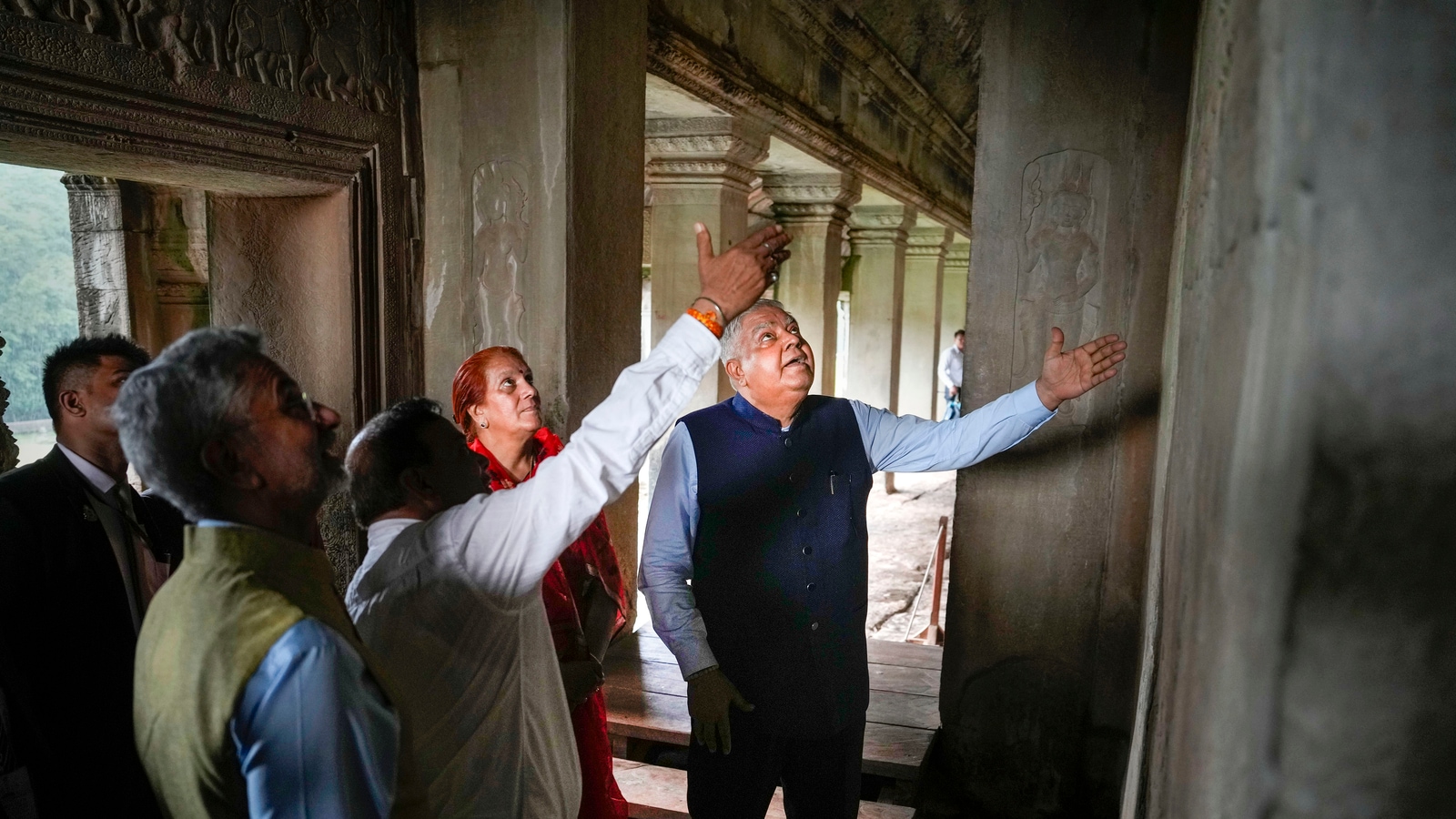India and Cambodia have decided to start direct air linkages between the two countries with impetus on tourism after the COVID-19 pandemic hit the sector.
Also Read| India, Asean elevate ties to comprehensive strategic partnership
“We are trying to start direct air linkages between India and Cambodia which would give a great impetus to tourism. When there are direct flights, people would love to come and see Angkor Wat and Cambodians would love to see the land of Buddha,” said Devyani Khobragade, India’s Ambassador to Cambodia.
What the Taj Mahal is to India, Angkor Wat is to Cambodia. The city of Angkor is also home to the UNESCO World Heritage site, Angkor Wat. Angkor is one of the most important archaeological sites in South-East Asia.
Also Read| Deciphering the 19th ASEAN-India Summit
Angkor Wat is a temple complex in Cambodia and one of the largest religious monuments in the world.
Regarding Vice President Jagdeep Dhankar’s visit to Cambodia to attend the ASEAN-India Commemorative Summit and the 17th East Asia Summit, Khobragade said, “VP’s first official visit abroad is to Cambodia. India in Cambodia is celebrating 70th anniversary of our bilateral relations.We have been trying to increase institutional linkages in various sectors.We signed four MoUs during the visit.”
“The agreement is between Cambodia’s External Affairs Ministry and the Government of India. India will give USD 70000 for the project for funding the local body APSARA, which will be doing the restoration work, ” DS Sood a conservation expert who is associated with the ongoing Archaeological Survey of India’s restoration work at the famed Ta Prohm Temple in Angkor Wat told ANI.
India has been for long associated with the restoration work of temples in Cambodia.
Meanwhile, another MoU that was signed on the sidelines of the ASEAN Summit was between the IIT, Jodhpur, and the Institute of Technology, Cambodia in the field of Research, Development, and Application of Technology for Digital Documentation of Cultural Heritage.
A third MoU was signed in the field of health and medicine between the Ministry of Health and Family Welfare of India and the Ministry of Health, Cambodia.
Another agreement signed was regarding the reintroduction of tigers in Cambodia between the Ministry of Environment, Forests and Climate Change, India and the Ministry of Environment, Cambodia for Cooperation in Biodiversity Conservation and Sustainable Wildlife Management.
“We will start with capacity building of the tiger ecosystem in Cambodia followed by the transfer of tigers. Third MoU in the area of digital conservation of cultural heritage between IIT Jodhpur and the Institute of Tech of Cambodia. It would help in mapping temples of Indian origin in Cambodia,” said Khobragade.
“The fourth one is for the restoration of Ramayana murals in Wat Bo, it is a living pagoda in Siem Reap. This is part of our preservation of the Ramayana trail from India to South East Asia,” added Khobragade.
India is funding the conservation work of ancient Ramayana-based murals in Angkor Wat’s Wat Raja Bo Pagoda in Cambodia’s cultural town of Siem Reap.
The murals depict the Indian cultural impact on Cambodian society.
The Financing Agreement on Conservation and Preservation of Wat Raja Bo Pagoda Paintings is one of the four agreements signed today between India and Cambodia – in the fields of culture, wildlife and health.
Meanwhile, Dhankar departed to Siem Reap from Phnom Penh. In Siem Reap, he will inaugurate the Hall of Dancers at the Ta Phrom temple. The Vice President will also pay a short visit to Angkor Wat temple where India had done work during the 80s.
He is set to inaugurate the recently restored ‘Hall of Dancers’ at the famed Ta Prohm temple, located inside the Angkor Heritage Park adjacent to the cultural and tourist province of Siem Reap.
Made famous in the 2001 film, ‘Tomb Raider’ starring Angelina Jolie, the restoration work at the sprawling and quiet Buddhist monastery of Ta Prohm has been completed by the Archaeological Survey of India (ASI).



